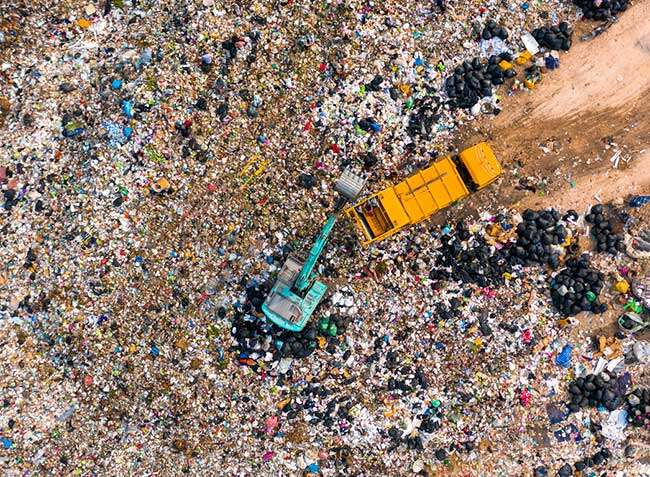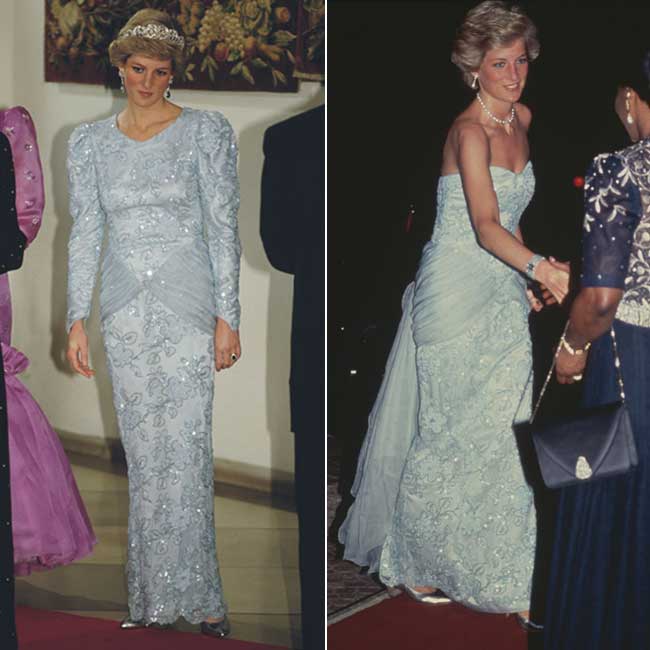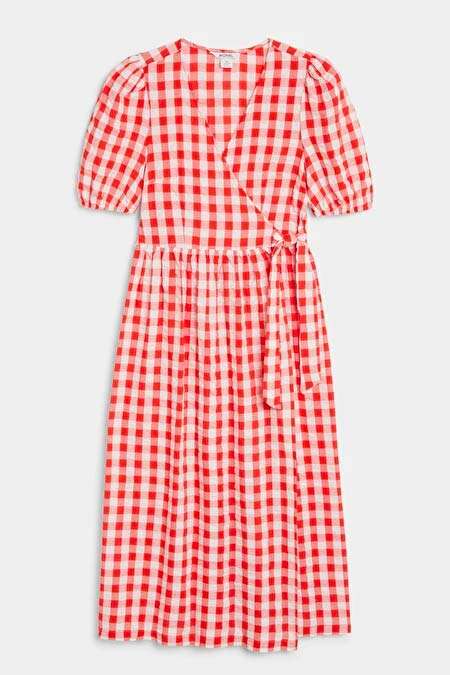Blog, Royal Style, Style
Simple Steps To Make Your Wardrobe More Sustainable
ADS
Fast fashion is a toxic relationship too many of us can’t quit. Every online haul, every impulse buy, all the unworn clothes we bought for a one-off occasion that sit in our wardrobes – and it is costing the planet. Simple Steps To Make Your Wardrobe More Sustainable
We’re all familiar with the threat of single-use plastic and its contribution to the ever-looming climate change. With reusable food wraps, plastic-free nappies and sustainable beauty products taking the world by storm, even the Queen followed suit by banning plastic straws in Buckingham Palace.
ADS
Not the sample sale you had in mind? This is a clothing landfill site
But what about the impact of cotton and its link to one of the most polluting, exploitative and wasteful industries? We’re talking about the fashion industry.
Given that only 2% of the world’s garment workers are paid a livable wage, it’s not just the planet we need to be conscious of when we impulsively click ‘add to cart’. With cheap clothing and affordable brands relying on exploitation to bring us our #ootd material, you may want to think twice before your next online order.
ADS
Don’t panic buy
We’ve all been there. Your favourite shop has a 25% off sale and there’s only an hour left to add to the cart. This sales tactic lures us into panic buying more clothes than we really need – and in turn, we’re left with a wardrobe full of unworn outfits.
Instead, make a wish list of clothes you really need. If, after a week you’re still convinced you to need an outfit overhaul, you can make that purchase mindfully. Guaranteed your basket won’t be half as full as it would have been before that sale – and you’ve already cut back on unnecessary fashion waste.
ADS
Mend your clothes
The Princess of Wales was a sustainable icon before her time
If this style hack is good enough for Princess Diana, it’s good enough for you. The royal was spotted in a stunning blue Catherine Walker gown in 1986 at a dinner hosted by the Emir of Qatar in Doha. Two years later, she ditched the sleeves for a flattering sweetheart neckline when she attended a charity ball in 1989.
It doesn’t take a genius to learn how to use a needle and thread – and doubling the life of your clothes from one year to two years reduces carbon emissions by 24%. Win, win.
Buy second hand
It’s important to recognize that buying from small businesses, ethical outlets and quality sustainable brands comes with a price – and not everyone can justify spending more money on fewer clothes.
Although the temptation of an impulse buy is sometimes too hot to handle, try to look at second hand outlets like Depop or Vinted, or try your hand at charity shop thrifting. Pre-loved clothing is not only cheaper but is often as good as new!
ADS
Be an outfit repeater
The most sustainable wardrobe is the one you already own – so be an outfit repeater! It’s tempting to stay on top of trends and slip into the habit of buying new clothes the second you see someone wearing them on Instagram, but trends change like the seasons.
Even a royal can be an outfit repeater
The Duchess of Cambridge is a champion of sustainable fashion, often choosing to repeat outfits she’s previously worn. She first wore this Alexandar McQueen dress to a Malaysian state dinner in 2019, then again at the 2020 BAFTAs.
ADS
Be a mindful shopper
The key to giving your wardrobe an eco-overhaul is to change your attitude to shopping. If you’re really struggling to part ways with the cost-effective appeal of fast fashion, try to give your wardrobe a 50/50 split.
Use your discount codes and late-night hauls to shop for your basic tees, trousers and staples, because you know you’ll wear these again and again. Instead, swap your statement pieces for more sustainable options, such as a vintage coat, a thrifted pair of boots, or your mum’s leather trousers from the 90s.
Seersucker wrap midi dress, £45, Monki
We call this dress: “fashion, but make it ethical”. Monki is a sustainable brand with a purpose – 100% of their cotton is sourced sustainably. It’s a small step towards their bigger goal: to use only recycled or other sustainably sourced materials by 2030.
ADS
Don’t throw away your unworn items
According to waste charity, Wrap, more than 300,000 tonnes of used clothing goes to landfill in the UK every year. It goes without saying that mending your clothes, giving them to charity, handing them down to younger siblings, or even using them as cleaning products help to combat textile waste.
Rethink your social media
If it’s the constant changing of trends you can’t keep up with, block them from your life. Sustainable champions Eco-Age recommend going through your followers to remove any brands, influencers, or companies that promote ethics you’re trying to avoid.
“Eliminating the temptation is a small, easy step to take in changing your mindset around the fast-fashion industry. Take some time to follow positive eco-influencers and businesses.”
ADS









